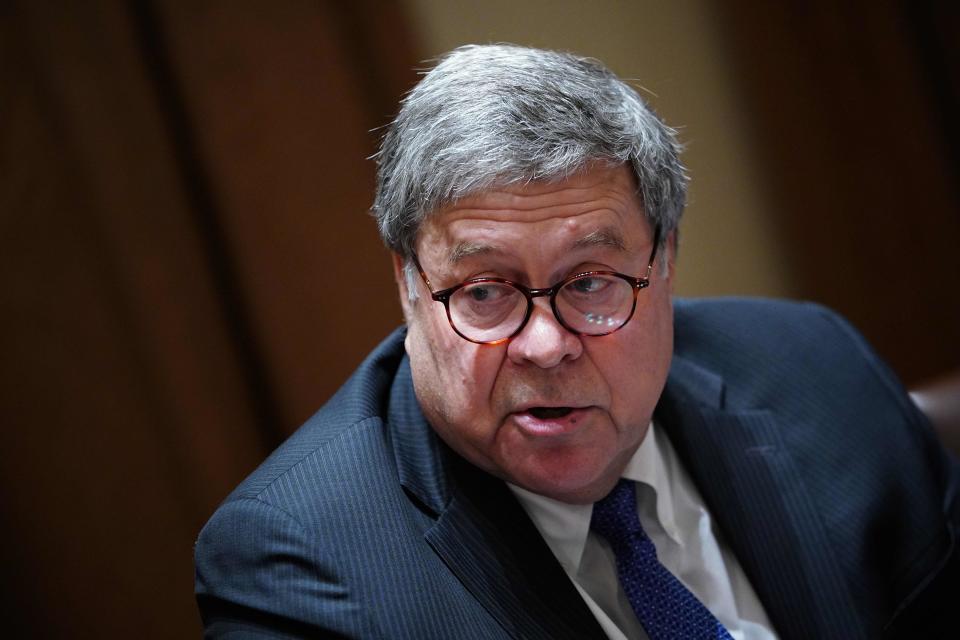Pressure is on to get Biden to fulfill a campaign promise before he leaves office
It's been almost 10 years since a white supremacist was welcomed into a South Carolina church and opened fire, killing nine people in a Bible study, including the Rev. Sharon Risher’s mother, two cousins and childhood friend.
When the shooter, Dylann Roof, was sentenced to death in 2017, Risher believed he deserved to die. Over time, she reconnected with her faith and found a way to forgive him. As she learned about the broader issues with the death penalty, like the racial disparities and the lack of evidence that it deters violent crime, Risher helped launch a campaign to save not only Roof’s life but the lives of all the men on federal death row, including high profile inmates like Dzhokhar Tsarnaev, who was convicted in the Boston marathon bombing and Robert Bowers, the man sentenced to death for the 2018 mass shooting at the Tree of Life Synagogue in Pittsburgh.
After sending an initial letter to the White House in 2022, Risher, who serves on the board of Death Penalty Action, hand-delivered a letter to the White House in June urging President Joe Biden to commute their sentences – but received no response. The nonprofit she represents sent the White House another letter, signed by 350 organizations, after former President Donald Trump won the election in November. It has not received a response. Her group sent a fourth letter Wednesday as the window runs out for Biden to grant clemency.
Opponents such as Risher say they want to secure life sentences for these prisoners before Trump takes office because he helped expedite 13 executions during the last six months of his first term. No federal executions have happened during Biden's presidency, which ends Jan. 20, 2025.
“We're afraid that if Biden doesn't step in, that this will happen again,” Risher said.
Death Penalty Action is among hundreds of advocacy groups pressuring Biden to fulfill a promise he made on the campaign trail in 2020 to end the federal death penalty and prevent Trump from initiating another series of executions. They've pleaded with Biden through letters, petitions and protests to commute the sentences of all 40 men on federal death row. (The last woman on federal death row was executed eight days before Trump left office.) There’s precedent at the state and federal level for mass 11th-hour commutations, but given Biden’s record on clemency, it’s unclear if he’ll take action.
“He absolutely can commute all of those sentences," said Rachel Barkow, a professor of law at New York University who has written about presidential clemency. "I just don't know if he will."
Executions on the rise Deadliest year in a decade for executions worldwide; U.S. among top 5 countries
Trump administration's unprecedented run of executions
Trump took a hard line on the death penalty last time he was in office. Attorney General William Barr said after the first executions were scheduled in 2019, "The Justice Department upholds the rule of law – and we owe it to the victims and their families to carry forward the sentence imposed by our justice system."

The Trump administration was the first to carry out the federal death penalty in 17 years, overseeing 13 executions, in an unprecedented run that continued despite the challenges of the COVID-19 pandemic. The inmates included Daniel Lewis Lee, the first prisoner executed by the federal government since 2003, and Lisa Montgomery, the only woman on death row and the first woman executed in nearly 70 years.
On the campaign trail, Trump called for expanded use of the death penalty to punish drug dealers, human traffickers, child rapists and migrants who kill American citizens or law enforcement officers. The Trump transition team did not respond to a request for comment about its policy for the upcoming term.
In 2008, the Supreme Court struck down a Louisiana statute that authorized the death penalty for child sexual abuse, citing a national consensus that capital punishment should be reserved for the worst offenses.
The vast majority of offenses that qualify for a federal death sentence involve murder. The exceptions are crimes such as espionage and treason, according to Robin Maher, executive director of the Death Penalty Information Center. To broaden the list of crimes that qualify, Trump would need the approval of Congress.
"Some of his proposals are legally dubious at best, and I think there will be some challenges to any efforts to expand the death penalty beyond its current limits," Maher said.
What the incoming Trump administration means for you: Sign up for USA TODAY's On Politics newsletter.
Biden consistently 'inconsistent' on capital punishment
Biden pledged on his campaign website he'd push for legislation to abolish the federal death penalty and would encourage states to do the same. He then became the first president to oppose the death penalty.
But Biden did little to advocate for the bill introduced by Rep. Ayanna Pressley, D-Mass., and Sen. Dick Durbin, D-Ill., to end the federal death penalty, said Austin Sarat, a professor of jurisprudence and political science at Amherst College.
"The record is mixed," Sarat said, noting, "The rhetoric was very good, but the record has so far not matched the rhetoric."
Attorney General Merrick Garland imposed a moratorium on federal executions in 2021, removing the death penalty from the table in more than two dozen death penalty cases in which the Trump administration had authorized it.

The federal system has many of the systemic problems found at the state level, according to a report from the Death Penalty Information Center. Since 1989, nearly 75% of defendants authorized for federal death penalty prosecutions were people of color and federal capital trials are more likely to have all white or nearly all white juries.
But federal prosecutors have continued to fight the appeals of people on death row and pursue new death sentences in a handful of cases including for Bowers and the man who killed 10 Black people in a racist massacre at a Buffalo, New York, supermarket in 2022.

Attorney Terry Connors, who represents many Buffalo victims in a lawsuit, told local media not all of his clients felt the same about the shooter possibly facing execution.
"There was a split," Connors told Spectrum News. "Several of them felt that life in prison was the appropriate sentence. Let him stay there and experience that. And there were others that thought the maximum punishment was appropriate in this case. And if not in this case, in what case?"
Sarat, from Amherst, noted that continuing to pursue the death penalty in select cases was Garland's decision, and Biden may not have wanted to interfere with the independence of the Justice Department.
Still, Sarat said, "The only thing consistent about Biden's record on the death penalty is how inconsistent it was."
Last-minute reprieves are not unusual
Issuing a flurry of commutations, including for people on death row, before an executive leaves office is "super common," according to Barkow, from NYU.
Several governors have cleared their state's death row including Oregon Gov. Kate Brown in 2022, Colorado Gov. Jared Polis in 2020, Illinois Gov. George Ryan in 2003 and New Mexico Gov. Toney Anaya in 1986.
At the federal level, death row pardons date to the country's inception, when President George Washington pardoned two people sentenced to death for their roles in the Whiskey Rebellion. In the modern era, President Barack Obama granted clemency to a federal death row inmate with an intellectual disability and commuted the death sentence of someone on military death row, according to Maher, at the Death Penalty Information Center.
"It would not be unprecedented for him to do something like this," Maher said of Biden.
The US has executed 21 men this year A look at the state of the death penalty
So, what will Biden do?
The White House has not offered a response to USA TODAY's request for comment on Biden's plans regarding federal death sentences.
Although Biden hasn't responded to her group's petition, Krisanne Vaillancourt Murphy, executive director of Catholic Mobilizing Network, said she's hopeful that as a fellow Catholic, Biden will take action.
"I just hope and pray that he sees this opportunity to use his constitutional authority and also align with something really significant in the light of his faith tradition," Murphy said.
Sarat, from Amherst, said there's a multitude of issues Biden pledged to address before leaving office. The president is aware that support for the death penalty has fallen to the lowest level in decades, Sarat said and knows, "We are in a moment of national reconsideration of capital punishment."
"There's more political space for Biden to do a mass commutation than one might think," he said.
Biden has issued federal pardons for marijuana users and military veterans convicted under a law that banned gay sex, but his overall clemency rate is low, according to Barkow, at NYU. "It's been poor. I probably personally would give him about a D," she said.
At the end of a 50-year political career, Biden is likely thinking about how he wants to be remembered, Barkow said. Using the power only he holds to offer a blanket commutation would demonstrate his moral opposition to the death penalty as a whole, rather than making a statement about a specific case, she said.
"Commuting the entire death row to life without parole sentences as a statement against the death penalty would be a really bold legacy move,” Barkow said.
Contributing: Reuters
(This story has been updated to add information.)
This article originally appeared on USA TODAY: Trump may expedite executions. Here's how Biden could stop him.
